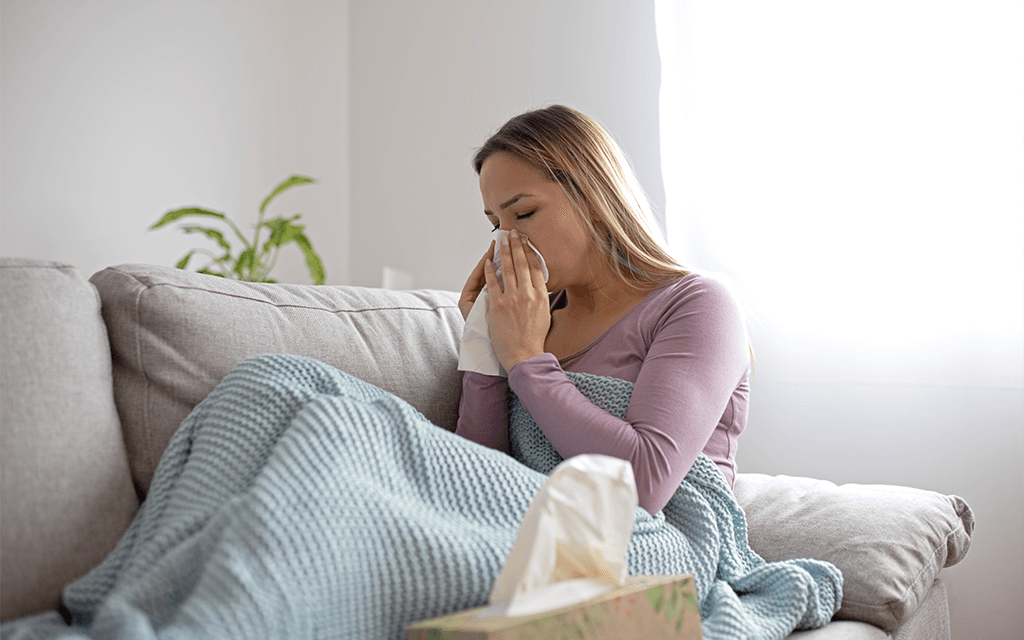What You Need to Know About Flu and RSV this Season
02/03/2023

Even though the winter season is almost over, it's essential to keep ourselves and our loved ones healthy and protected from illnesses such as the flu and RSV. Although both viruses can cause similar symptoms, they're caused by different viruses and can vary in severity, making it crucial to know how to protect yourself and your family. In this article, we'll discuss what you need to know about the flu and RSV this season to help you stay healthy and prepared.
What is RSV (Respiratory Syncytial Virus)?
RSV, or Respiratory Syncytial Virus, is an RNA virus that particularly causes an epidemic disease in children, affecting the entire respiratory system, including the nose, throat, and lungs, especially during winter months. It is the most common cause of lower respiratory tract infections during infancy, and almost all babies catch the virus by the age of two and recover from the illness. Although immunity to the virus is developed after the illness, individuals can still catch the disease from the virus later on. While it is not a severe illness, if left untreated, it can lead to fatal results, particularly in individuals with chronic lung diseases such as asthma.

Symptoms and Transmission Routes of RSV:
RSV tends to become widespread, particularly during the winter and early spring months, and is often confused with influenza and COVID-19 due to their similar symptoms and respiratory system involvement. Common symptoms of these diseases include runny nose, sneezing, fever, wheezing in the chest, and loss of appetite. However, there are certain symptoms that differentiate these illnesses from each other. For instance, COVID-19 significantly affects the sense of taste and smell, and often renders them dysfunctional, while flu symptoms appear more quickly, and the illness process for RSV is usually gradual.
What else can be caused by RSV? Such symptoms
- Stuffy nose
- Cough
- Sneezing
- Sore throat
- Fever
- Wheezing
- Rapid breathing or difficulty breathing
- Bluish color of the skin due to lack of oxygen (in severe cases)
- Irritability or decreased activity (in infants and young children)
The virus can be transmitted through direct contact with droplets from an infected person's airways, such as through coughing, kissing, or sneezing, or by touching a surface contaminated with these droplets and then touching moist organs such as the mouth, eyes, and nose. Therefore, it is essential to avoid direct contact with individuals showing symptoms of the disease and continue using common areas only after disinfecting them.
Treatment of RSV:
There is no known specific treatment for RSV. Therefore, after taking the patient's history, an RSV PCR test is performed using nasal swabs. Since the test results have an accuracy rate of 97%, the diagnosis of the disease can be accurately determined. In the treatment stage, since there is no known definitive treatment method, a treatment is applied according to the patient's complaints. RSV infection is a viral infection, so there is no antibiotic treatment for the pathogen.
Since the disease generally shows flu or cold symptoms, when it is put under intensive treatment, it usually goes away within a few days. However, in babies under the age of 1, the disease can show more severe symptoms and cause widespread bronchiolitis and pneumonia. In such cases, babies are hospitalized and given oxygen, humidified air, and fluid supplementation through intravenous therapy. In severe cases, mechanical ventilation (respirator) is used.
How to Protect Yourself from RSV:
Currently, there is no vaccine that provides definite protection against RSV. However, since Respiratory Syncytial Virus is transmitted through contact and airborne droplets, precautions taken against these situations can help prevent the virus. Some measures you can take to protect yourself are listed below:
- Practice good hygiene: Wash your hands often with soap and water for at least 20 seconds, especially after being in contact with someone who is sick or after blowing your nose, coughing, or sneezing.
- Cover your mouth and nose when coughing or sneezing.
- Try to avoid being in close contact with people who are sick, especially if they have symptoms of a respiratory infection. Wear a mask and maintain social distancing.
- Don’t share items of personal belonging like towels or tooth brushes, and do not leave them moist for long periods.
- Disinfect surfaces that an infected person has touched or where there has been a lot of contact.
- During times when the disease rate is high, especially in winter, the time children spend in places such as daycare centers should be limited.
- Quit smoking or do not smoke, especially in environments where babies are present, because inhaling cigarette smoke increases the risk of RSV infection in babies.
- Stay home if you're sick: If you have symptoms of a respiratory infection, stay home and avoid close contact with others until you're feeling better.
Make sure you follow basic safety guidelines to prevent the virus from spreading around.
Where to Get Tested?
If you have even the most distant symptoms indicating Covid-19, it is worth getting a Covid PCR test Number One Lab in Miami. When you take the test, specialists take a nasal swab, put it in a tightly sealed tube, label it, and send it to the lab for testing. The patient can get the results of the test by e-mail.
» Are you afraid of gonorrhea? Learn the causes disease of gonorrhea